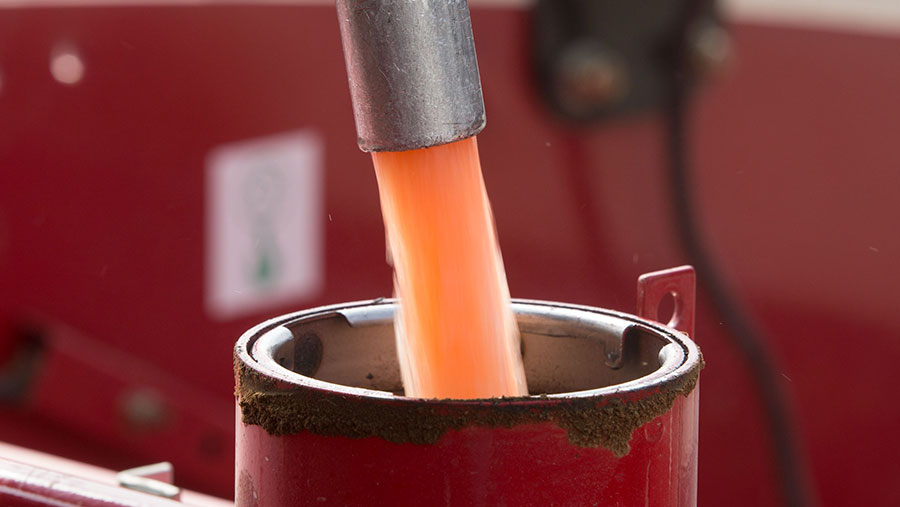Oil refinery acts on diesel after farmer complaints
 © Tim Scrivener
© Tim Scrivener A Scottish oil refinery has changed the formulation of its diesel fuel after farmers complained it was causing problems.
Hundreds of farmers in Scotland have reported issues with diesel – including blocked fuel filters, low engine pressure and injector failure.
See also: Guidance issued for farmers suffering biodiesel problems
Many believe the problem is due to an increase in the fatty acid methyl ester (Fame) content of diesel fuel, which influences its performance. Fame is the generic chemical term for biodiesel derived from renewable sources.
Farmers elsewhere have also reported problems – including in England.
Now Petroineos, the only crude oil refinery in Scotland, says it is reducing the volume of biofuel blended into their fuel while they continue to investigate the issue.
Quick action
The announcement follows extensive lobbying by NFU Scotland and other stakeholders, including Petroineos, for Scottish and UK governments to act quickly on this issue.
NFU Scotland said it had continued to log calls from members suffering problems following a meeting with Petroineos representatives on 20 November.
There were now 380 individuals who had logged an issue with fuel – and the union had carried out fuel tests to try to ascertain the cause.
NFU Scotland president Andrew said he wanted a short-term derogation and a longer term taskforce to undertake a full investigation into the situation.
He said the longer-term implications of biofuel in diesel needs to be better understood and an expert group should be set up to prevent the issue from reoccurring.
‘No quick fix’
Mr McCornick said: “It is positive to see Petroineos acting swiftly off the back of the discussions with NFU Scotland and other industry leaders.
“This issue is not a quick fix, though, and may not completely resolve this problem. We need government to work with producers and users to find a workable, long-term solution to these issues.
“We need to see an expert working group established and NFU Scotland must be involved to represent our members, whose businesses have been heavily affected by these biofuel issues.”
Thanking farmers who had taken the time to report problems with fuel, Mr McCornick said it was important that members who hadn’t yet done so come forward.
“This information is still important and will help to give us the best possible understanding of the problem, so we can feed these into discussions going forward.”

